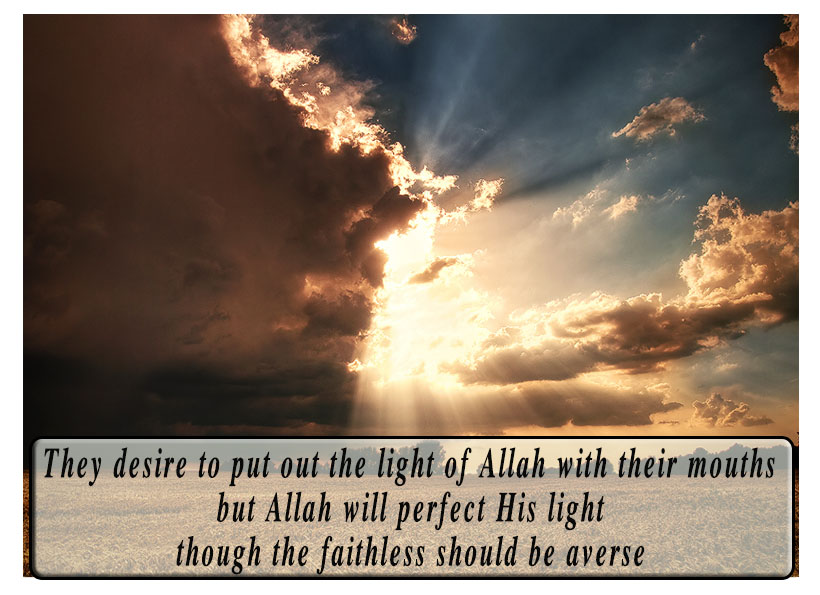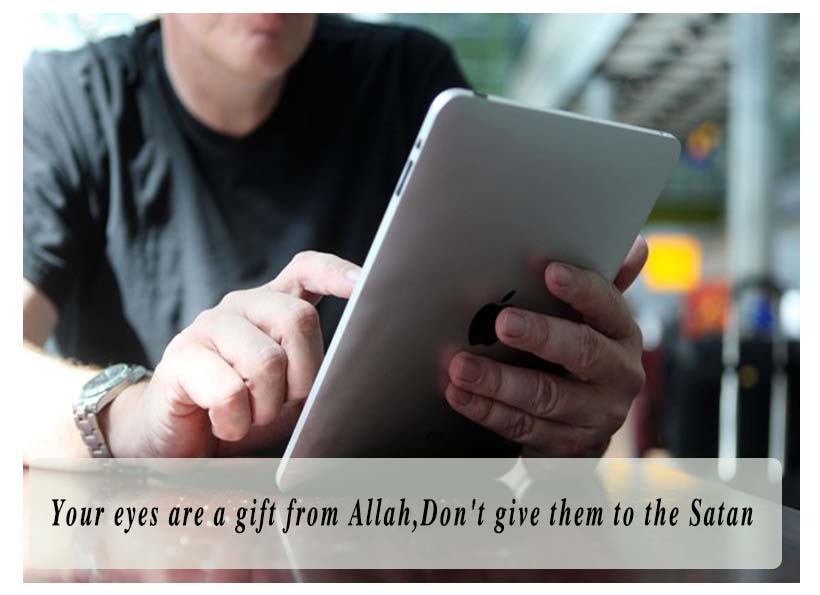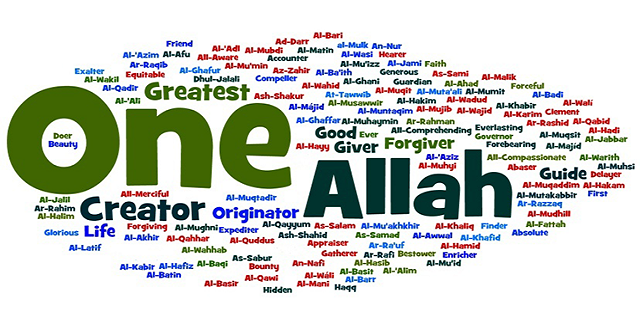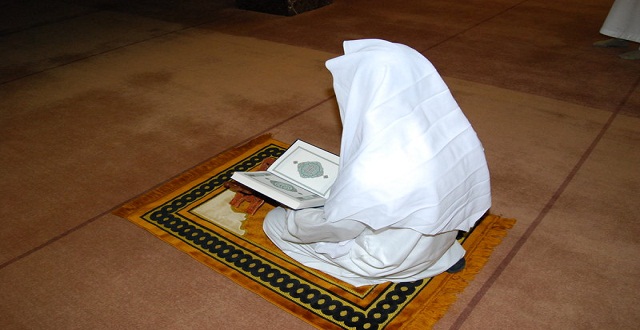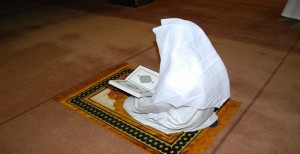Posts
What is the difference between Islam and Iman?
In verse 14 of Suratul Hujurat, we read:
قَالَتِ الأََعْرَابُ آمَنَّا قُلْ لَمْ تُؤْمِنُوا وَ لٌكِنْ قُولُوا أَسْلَمْنَا وَ لَمَّا يَدْخُلِ الإِِيْمَانُ فِي قُلُوبِكُمْ
“The dwellers of the desert say: We believe. Say: You do not believe but say, We submit; and faith has not yet entered into your hearts.”
The question that arises here is: What is the difference between ‘Islam’ and ‘Iman’?
According to this verse, the difference between them lies in that Islam possesses the external form such that whoever recites the shahadatayn1 enters into the category of Muslims, after which all the Islamic rulings shall become applicable with respect to him.
But «man is an issue, which is internal (to man), and is associated neither with his tongue nor his exterior, but rather his heart.
There could be various motives for Islam – even material and personal benefits, yet Iman always stems from knowledge, awareness and spiritual motives and it is due to this Iman that taqwa (piety) manifests itself. This is witnessed in an eloquent statement of the Noble Prophet (S):
اَلإِسْلاَمُ عَلاَنِيَيَّةٌةُ وَ الإِيـمَانُ فِي الْقَلْبِ.
“Islam is (a) proclaimed (issue), whereas Iman is housed in the heart.”2
In another tradition, Imam as-Sadiq (a.s.) has said:
اَلإِسْلاَمُ يُحْقَنُ بِهِ الدَّمُ وَ تُؤَدَّى بِهِ الأََمَانَةُ وَ تُسْتَحَلُّ بِهِ الْفُرُوجُ وَ الثَّوَابُ عَلـى الإِِيـمَانِ.
“By means of Islam, the blood (of man) is safeguarded, trusts are returned, matrimony becomes lawful; but rewards are on account of «man.”3
And it is for this very reason that in some traditions the concept of Islam has been confined to the vocal testimony, whereas Iman has been emphasized as being testimony in conjunction with deeds.
اَلإِِيـمَانُ إِقْرَارٌ وَ عَمَلٌ وَ الإِِسْلاَمُ إِقْرَارٌ بِلاَ عَمَلٍ.
“True faith is to testify and to act while submission (al-Islam) is to testify prior to acting.”4
This meaning is also seen under the discussion ‘Islam and Iman’; Fudhail ibne Yasar states: I heard Imam as-Sadiq (a.s.) say:
إِنَّ الإِيـمَانَ يُشَارِكُ الإِِسْلاَمَ وَ لاَ يُشَارِكُهُ الإِِسْلاَمُ إِنَّ الإِِيـمَانَ مَا وَقَرَ فِي الْقُلُوبِ وَ الإِِسْلاَمَ مَا عَلَيْهِ الْمَنَاكِحُ وَ الْمَوَارِيثُ وَ حِقْنِ الدِّمَآءِ.
“Verily, «man teams up with Islam but Islam does not team up with «man. Indeed, Iman is that which settles into the heart whereas Islam is that, which governs the rules of marriage and inheritance, and safeguards the (shedding of) blood (of man).”5
Nonetheless, this difference in meaning is applicable only when both these terms are used alongside each other, however if they are used separately, it is possible that Islam may refer to the same thing, which is referred to by Iman; i.e. each of these two terms may be used synonymously.6
——————————————————————
1. ‘The two testimonies’ – testifying to the Unity of Allah (s.w.t.) and the Prophethood of the Noble Prophet (S). (Tr.)
2. Majma’ul Bayan, vol. 9, pg. 138
3. al-Kafi, vol. 2, Chapter Inna al-Islam Yuhqanu bihi al-Damm, no. 1 and 2
4. Ibid.
5. Ibid., no. 3
6. Tafsir-e-Namuna, vol. 22, pg. 210
What is the manner of washing the face, and ……
Verse number 6 of Suratul Maidah makes a mention of all those things that bring about the purification of man’s soul and hence, a considerable portion of the rulings associated with Wudu, ghusl and tayammum, which bring about purification of the soul, have been explained therein. Initially the believers are addressed and the rulings related to Wudu, are mentioned as follows:
يَا أَيُّهَا الَّذِينَ آمَنُوا إِذَا قُمْـتُمْ إِلـى الصَّلاَةِ فَاغْسِلُوا وُجُوهَكُمْ وَ أَيْدِيَكُمْ إِلـى الْمَرافِقِ وَ امْسَحُوا بِرُؤُسِكُمْ وَ أَرْجُــلَكُمْ إِلـى الْكَعْـبَيْنِ
“O you who believe! When you rise up to prayer, wash your faces and your hands as far as the elbows, and wipe your heads and your feet to the ankles.”
In this verse the portion of the hand that ought to be washed during Wudu has been mentioned, since مَراَفِق is the plural of مِرْفَق – meaning elbow. Since it is possible that when it is said “wash your hands”, it could be thought that they should be washed till the wrists – as this is the measure that is generally washed – the verse, in order to do away with this misconception, specifies ‘as far as the elbows’ (إِلَى الْمَرافِقِ).
From the above explanation it becomes clear that the word إِلـىَ in the verse is only for mentioning the limits of washing and not the manner of washing as some have imagined – having taken the verse to mean: Wash the hands from the tips of the fingers towards the elbows (as is prevalent amongst a group from amongst the Ahlus Sunnah).
The above issue is similar to the case when a person instructs a worker to paint the walls of a room from the floor up to a height of one meter. It is plainly evident that it is not intended that the wall should be painted from the bottom towards the top – rather, it means that this is the portion that has to be painted – neither more nor less.
Hence, only the extent that needs to be necessarily washed has been mentioned in the verse; however, as far as the manner of washing is concerned, it has been mentioned in the traditions of the Noble Prophet (s.a.w) that have reached us by means of the Ahlul Bayt G, and it is to wash the hands from the elbows towards the fingertips.
The letter (ب), which is found in the word (بِرُؤُسِكُمْ) – according to the explicit statements of some of the traditions and clear opinions of some of the lexicographers – is used to denote ‘a part’ (or portion) – as such the meaning conveyed by the verse is: ‘Wipe a portion of your heads’ which, in our traditions, has been delineated as the anterior one-fourth region of the head and this one-fourth portion ought to be wiped with the hand, however small be the measure of wiping.
It follows that the practice which is prevalent amongst some of the Sunni groups, who wipe their entire heads and even their ears, is inconsistent with the meaning conveyed by the verse.
The word أَرْجُلَكُمْ being located next to بِرُؤُسِكُمْ is a testimony to the fact that the legs should also be wiped and not washed. (And if we observe that during recitation, أَرْجُلَكُمْ is recited such that (ل) possesses the fathah (the vowel point for ‘a’), this is due to it being superimposed upon the place of بِرُؤُسِكُمْ and not on the word وُجُوهَكُمْ .
Why old age is brilliant light on the Day of Resurrection
As in hadith below it is explained, why old age is brilliant light on the day of Resurrection? Imam al-Sadiq (AS) said, ‘I have never seen anything catch up with something faster than old age catches up with a believer, for verily it is a source of dignity for the believer in this world and a brilliant light for him on the Day of Resurrection. Allah, Most High, honoured Abraham (AS) with it [old age], who said, ‘What is this, my Lord?’ to which Allah replied, ‘This is dignity’, so Abraham said, ‘O my Lord, increase me in dignity then.’[Amali al-Tusi, p. 699, no. 1492]
Concise answer
In the religion of Islam, old age has been considered to be a privilege for the aged in order for others to respect them. There are two sets of traditions in this regard one of which emphasizes on respecting aged people under all circumstances without restrictions. The holy Prophet of Islam (S) has been narrated as having said: “Whoever knows the merit and respect of old age and respect the aged ones, God will relieve him of the fear and horror of the Day of Resurrection.[1]
Imam Sadiq (A.S) said, “He is not from us, who does not respect the old and do not have pity on children.”[2]
Another set of traditions have also been reported about respecting aged and faithful Muslims. Respecting aged ones who are Muslim and faithful has been stressed upon. The Holy Prophet (S) has been reported as having said: “Whoever respects a Muslim (man or woman) whose hair has turned white due to old age in the way of Islam, God will relieve him of the fear and horror of the Day of Resurrection.”[3]
Imam Sadiq (A.S) said: “Respecting a white-haired believer, is a part of respecting the Lord. Whoever respects a believer has begun to respect God and whoever disregards a white-haired believer, God will designate someone to belittle him.”[4]
For an old and aged Muslim person especially he who is believing one, in addition to worldly respect accorded to him in the religion, old age has been considered to be a privilege for the aged on the Day of Resurrection. The whiteness of the hair will be for him as brilliant light on the Day of Resurrection.
In this regard, Imam Sadiq, peace be upon him, says: “I have never seen anything catch up with something faster than old age catches up with a believer, for verily it is a source of dignity for the believer in this world and a brilliant light for him on the Day of Resurrection. Allah, Most High, honoured Abraham (AS) with it [old age], who said, ‘What is this, my Lord?’ to which Allah replied, ‘This is dignity’, so Abraham said, ‘O my Lord, increase me in dignity then.”[5]
Also, else where Imam Sadiq (A.S) said: “A man went to the Prophet (S) who looked at his hair and said that it was light. He whose hair has become white in Islam, the whiteness of his hair will turn to brightness on the Day of Resurrection.”[6]
One of the reasons for the fact that this sign of old age will be brilliant light for the believer is that an aged man has had more opportunity to worship God and attain the degrees of faith (iman) and also to get rid of the darkness of ignorance and nafs (carnal soul). Since he has availed himself of the opportunity acquiring the light of faith, as evidenced by many verses of the Holy Quran[7] and that God himself places the divine light in a believer’s heart,[8] and the believer had been increasing the brilliance of his body and soul, God the Exalted will make his hair a sign of the brilliant light of his soul, the light which he has gained as a result of worshipping Allah and acquiring some degrees of faith.
[1] [1].«مَنْ عَرَفَ فَضْلَ کَبِیرٍ لِسِنِّهِ فَوَقَّرَهُ آمَنَهُ اللَّهُ مِنْ فَزَعِ یَوْمِ الْقِیَامَةِ» Kulayni, Muhammad, Al-Kafi, researched and edited by Ghaffari, Ali Akbar, Akhundi, Muhammad, vol.2, p. 658, Dar al-Kutub al-Islamiyah, Tehran, fourth edition, 1407 A.H.
[2] «لَیْسَ مِنَّا مَنْ لَمْ یُوَقِّرْ کَبِیرَنَا، وَ یَرْحَمْ صَغِیرَنَا» Sheikh Hurr Amili, Muhammad bin Hasan, Hidayat al-Ummah Ila Ahkam al-Aemmah (A), vol.5, p. 156, Astaan al-Razawiyah al-Muqaddash, Majma’ al-Bohuth al-Islamiyah, Mashad, first edition, 1414 A.H.
[3] «مَنْ وَقَّرَ ذَا شَیْبَةٍ فِی الْإِسْلَامِ آمَنَهُ اللَّهُ عَزَّ وَ جَلّ َمِن ْفَزَعِ یَوْمِ الْقِیَامَةِ» Al-Kafi, vol.2, p. 658.
[4] «مِنْ إِجْلَالِ اللَّهِ عَزَّ وَ جَلَّ إِجْلَالُ الْمُؤْمِنِ ذِی الشَّیْبَةِ وَ مَنْ أَکْرَمَ مُؤْمِناً فَبِکَرَامَةِ اللَّهِ بَدَأَ وَ مَنِ اسْتَخَفَّ بِمُؤْمِنٍ ذِی شَیْبَةٍ أَرْسَلَ اللَّهُ إِلَیْهِ مَنْ یَسْتَخِفُّ بِهِ قَبْلَ مَوْتِهِ»، Al-Kafi, vol.2, p. 658.
[5] Sheikh Tusi, Al-Amali, al-Nas, p. 699, Dar al-Thaqafah, Qom, first edition, 1414 A.H.
[6] Al-Kafi, vol.6, p. 480.
[7] “And to whomsoever Allah does not give light, he has no light.” [al-Noor, 40] “That is Allah’s grace; He grants it to whom He pleases, and Allah is the Lord of mighty grace.” [al-Jumu’ah, 4] “He is the one who follows the right way; and whomsoever He causes to err, these are the losers.” [al-A’raf, 178] “his is Allah’s guidance, He guides thereby whom He pleases of His servants.” [ al-An’am, 88]
[8] Sadruddin Shirazi, Muhammad, Sharh Usool al-Kafi, researched and edited, Khajawi, Muhammad, vol.1, p. 207, Center for Cultural Research and Studies, Tehran, first edition, 1383 A.H
What are the meanings of the informative attributes of Allah?
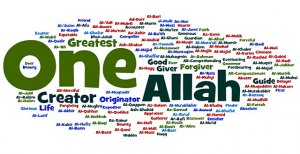 Khabariyah or informative attributes, the definitions and the views expressed concerning them are some of the most contentious issues among various Islamic theological schools. Khabariyah or informative attributes refer to attributes which have been mentioned in the Quran and narrations and that they are not supported by any proofs other than textual evidence.[1] Some examples of the Quranic verses which refer to these attributes are the following:
Khabariyah or informative attributes, the definitions and the views expressed concerning them are some of the most contentious issues among various Islamic theological schools. Khabariyah or informative attributes refer to attributes which have been mentioned in the Quran and narrations and that they are not supported by any proofs other than textual evidence.[1] Some examples of the Quranic verses which refer to these attributes are the following:
1. Hand of Allah (Yadullah):
«إِنَّ الَّذِینَ یُبایِعُونَکَ إِنَّما یُبایِعُونَ اللَّهَ یَدُ اللَّهِ فَوْقَ أَیْدِیهِمْ»[2]
“Surely those who swear allegiance to you do but swear allegiance to Allah; the hand of Allah is above their hands.”
2. Face of Allah (Wajhullah):
«وَ لِلَّهِ الْمَشْرِقُ وَ الْمَغْرِبُ فَأَیْنَما تُوَلُّوا فَثَمَّ وَجْهُ اللَّهِ»[3]
“Unto Allah belong the East and the West, and whithersoever ye turn, there is Allah’s Countenance (face). Lo! Allah is All-Embracing, All-Knowing.”
3. Eye of Allah (Ainullah):
«وَ اصْنَعِ الْفُلْکَ بِأَعْیُنِنا وَ وَحْیِنا»[4]
“And make the ark before Our eyes and (according to) Our revelation, and do not speak to Me in respect of those who are unjust.”
4. Being Established on the Throne:
«الرَّحْمنُ عَلَى الْعَرْشِ اسْتَوى»[5]
“(Allah) Most Gracious is firmly established on the throne (of authority).”
Keeping in view that these verses signify that God, the Glorified is physical and corporeal, it has been agreed by all Muslim scholars that while ascribing such attributes to God, we must suffice to what has been mentioned in the Quran and reliable traditions. However, different Muslim sects have fallen into dispute concerning the interpretation and meaning of these attributes. Some have likened God to material entities and human beings in the sense that He has eyes and hands like human beings. Some others have denied these attributes with regard to Allah saying that there is no resemblance between God and human beings. However, Shiite theologians relying on traditions and sayings of the Household of the Holy Prophet (S), have their own viewpoint as shall be mentioned.
A) Shia Perspective
The Shia school following the Household (Ahlul-Bayt), peace be upon them, believe that God, the Glorified, is free from matter and that He cannot be likened to anything on the surface of the earth. A careful look at the Quranic verses and the likes will reveal their true purport to us. For instance, Shia scholars unanimously state that the word “yad” (hand) in the Quran refers to God’s power. Thus it means that God is Almighty and All-Powerful. What is meant by ‘wajh’ is God, the Almighty Himself. That is to say, everything is mortal except God. As for being establishing on throne, it also means that God is All-Knowing and All-Powerful in contriving and running the world. Not only should we believe in the denial and likeness and resemblance of Allah to any other things, rather the principle that God is purified of all likeness applies to all divine attributes. For instance, God’s knowledge cannot be considered as acquired and external to His essence. God’s knowledge is identical with His essence. It is by presence and infinite. The position is the same with God’s power and life which are infinite and identical with His very essence.
Imam Reza (A.S) has been reported as having said: “In the subject of tawhid (divine unity), people are of three tendencies: “Negation (of the attributes); likening (God’s attributes to physical attributes) and substantiation of the attributes without likening. It is not permissible to deny the attributes nor is it permissible to liken them. And what is the right path and the correct method, is the establishment of the attributes without likening.”[6] That is to say we should believe in these attributes in such a way that we do not end up likening them to physical attributes.
B) The Sefatiyah Viewpoint
Sefatiyah had been one of the theological sects with many sub-divisions including Ash’arites, Mushabbeha and Karamiyah[7]. They did not differentiate between the attributes of essence and the attributes of action. At least, some of them considered certain khabariyah (informative) attributes like “face”, and “yad” (face and hand) as proven for God without any esoteric or anagogical interpretation. They went as far as to liken divine attributes to those of humans.[8]
C) The Mu’attilah Perspective
Contrary to Sefatiyah sect, the Mu’tazilites were the ones who have denied some of the names and attributes of God and it was for the same reason that they were called “mu’attilah”[9]. In the beliefs, the resemblance between God and His creatures has been negated with regards to Allah the Glorious and Majestic. No one from the creation is similar to Him.[10] This was a short account on the existing viewpoints regarding the attributes of Allah especially the informative ones under question.
[1] Subhani, Ja’far, Simai Aqaed Shia, translated by Muhaddethi, Jawad, p. 66, Mash’ar Publications, Tehran, 1386 A.H.
[2] Fath (48): 10
[3] Al-Baqarah (2): 115
[4] Hud (11): 37
[5] Ta-ha (20): 5
[6] The Arabic version of the narration is as such:
«للناس فی التوحید ثلاثة مذاهب: نفی، و تشبیه، و اثبات بغیر تشبیه، فمذهب النفی لا یجوز، و مذهب التشبیه لا یجوز، و السبیل فی الطریقة الثالثة، اثبات بلا تشبیه»
Sheikh Saduq, al-Tawhid, researched and corrected by Hussein, Hashem, p. 101, Islamic Publications Office, Qom, first edition, 1398 A.H.
[7] Mashkoor, Muhammad Jawad, Glossary of Islamic Sects, p. 301, Astaan Quds Razawi, Mashad, second edition, 1372.
[8] Shahristani, Al-Melal wa al-Nehal, researched by Badran, Muhammad, vol.1, p. 105, Al-Sharif al-Razi, qom, 1364.
[9] Rizwani, Ali Asghar, Shiatology and Answer to Spurious Questions, vol.2, p. 513, Nashr Mash’ar Publication, Tehran, 1384.
[10] Ibn Attiyah, Jamil Hamood, Abha al-Murad, fi Sharh Mu’atmar Ulama Baghdad, vol.2, p. 152, Al-A’alami Institute, Beirut, 1423.
What is the Quran’s perspective on waste and extravagance?
The religion of Islam is the religion of life and its precepts and rules set the grounds for human felicity and success, both for the individual, as well as the society. Islam has brought forth a complete program for every facet of human life and has advised balance and moderation to its followers in all affairs.
Extravagance and waste means going past the proper boundaries and is the opposite of moderation. The limits of such are set by the precepts of religion, the intellect, and society. Here, waste (Tabdheer) takes on the meaning of waste and excess in the usage of food, as well as in general matters of life.
The Quran has labeled the people who waste and are extravagant as the ‘Brothers of Satan’. People who waste on purpose and with full knowledge are considered as being one with Satan.
An individual who wastes in regards to the public treasury, his life, and his day to day expenditures with full knowledge and awareness is considered as being far from the reality of religion and he cannot be considered as being on the straight path (the Sirat al-Mustaqim).

